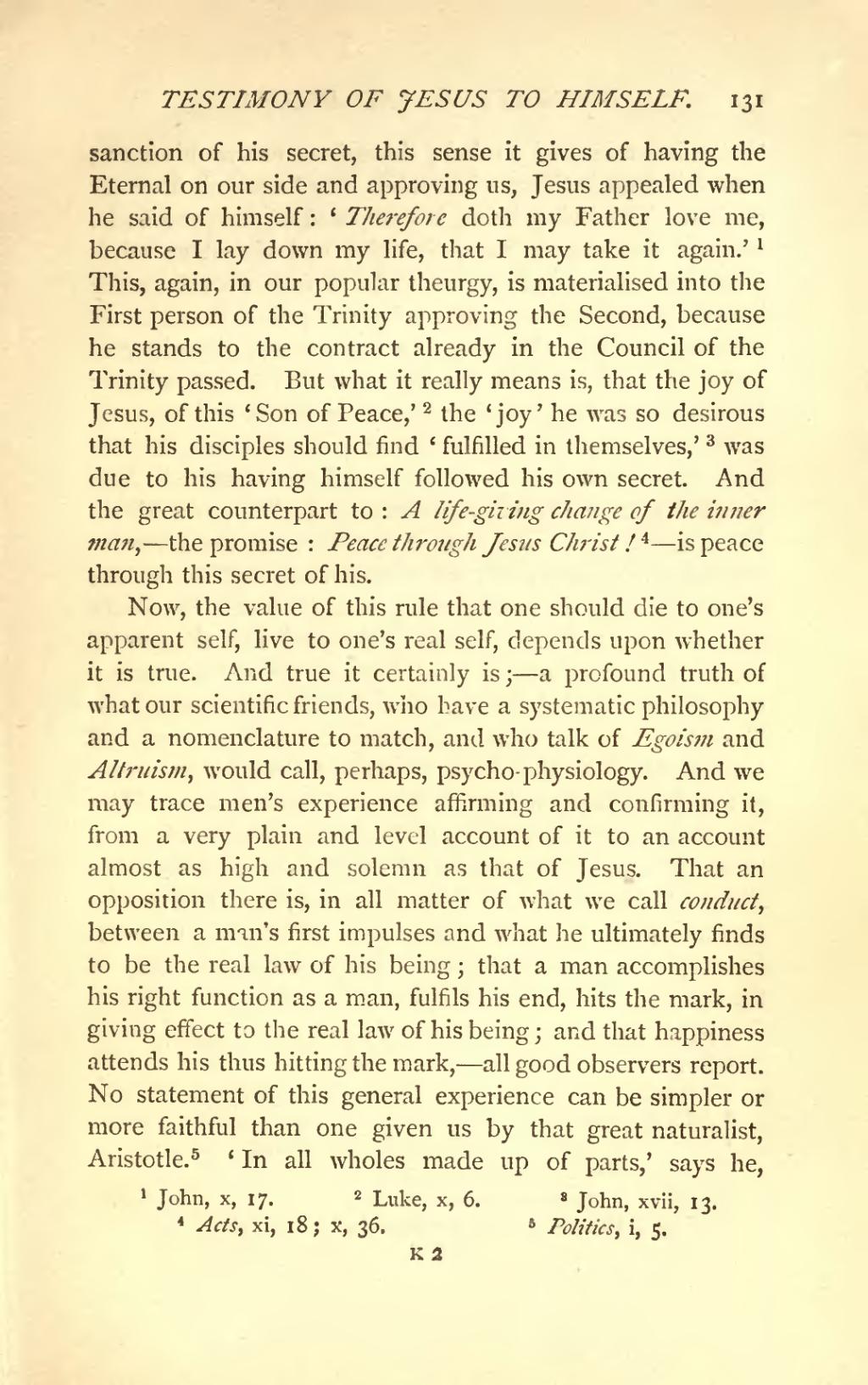sanction of his secret, this sense it gives of having the Eternal on our side and approving us, Jesus appealed when he said of himself: 'Therefore doth my Father love me, because I lay down my life, that I may take it again.'[1] This, again, in our popular theurgy, is materialised into the First person of the Trinity approving the Second, because he stands to the contract already in the Council of the Trinity passed. But what it really means is, that the joy of Jesus, of this 'Son of Peace,'[2] the 'joy' he was so desirous that his disciples should find 'fulfilled in themselves,'[3] was due to his having himself followed his own secret. And the great counterpart to: 'A life-giving change of the inner man,—the promise: Peace through Jesus Christ![4]—is peace through this secret of his.
Now, the value of this rule that one should die to one's apparent self, live to one's real self, depends upon whether it is true. And true it certainly is;—a profound truth of what our scientific friends, who have a systematic philosophy and a nomenclature to match, and who talk of Egoism and Altruism, would call, perhaps, psycho-physiology. And we may trace men's experience affirming and confirming it, from a very plain and level account of it to an account almost as high and solemn as that of Jesus. That an opposition there is, in all matter of what we call conduct, between a man's first impulses and what he ultimately finds to be the real law of his being; that a man accomplishes his right function as a man, fulfils his end, hits the mark, in giving effect to the real law of his being; and that happiness attends his thus hitting the mark,—all good observers report. No statement of this general experience can be simpler or more faithful than one given us by that great naturalist, Aristotle.[5] 'In all wholes made up of parts,' says he,
